A Difficult Job Gets Even Harder
So much about what and how teachers can teach kids is under tight control, including what is on school library shelves and classroom shelves. The curriculum in most school districts is practically scripted, which goes against the reason most people become teachers in the first place.
A huge aspect of teaching others about something is relaying the information in a personal, individualized way, or else teachers are merely glorified babysitters handing out worksheets. When you are teaching a subject such as language arts or history, there must be room for genuine discussion, or else the students might as well be learning online with no teacher.
But many school districts across the U.S. are trying to control even more of what and how teachers teach and restricting a student’s access to books in general, which is extremely alarming. But it is important to remember that it is a small but vocal minority who challenges books.
According to a 2022 poll conducted by the American Library Association, “Over 70% of parents in public schools oppose book banning.” But school districts feel pressured by threats and political pressure, so everyone is told to “err on the side of caution” when deciding if a book should stay on shelves or not.
Get the Books That Started It All
Before the blog, the podcast, the merch store… there were the best-selling books.
If you like the content on this site, then you’ll LOVE the Teacher Misery books. They’re jam-packed with teaching insanity, ridiculous true stories, and all the commiseration about the profession you’ve come to know, adore, and respect.
Follow the links below to get your copies today!
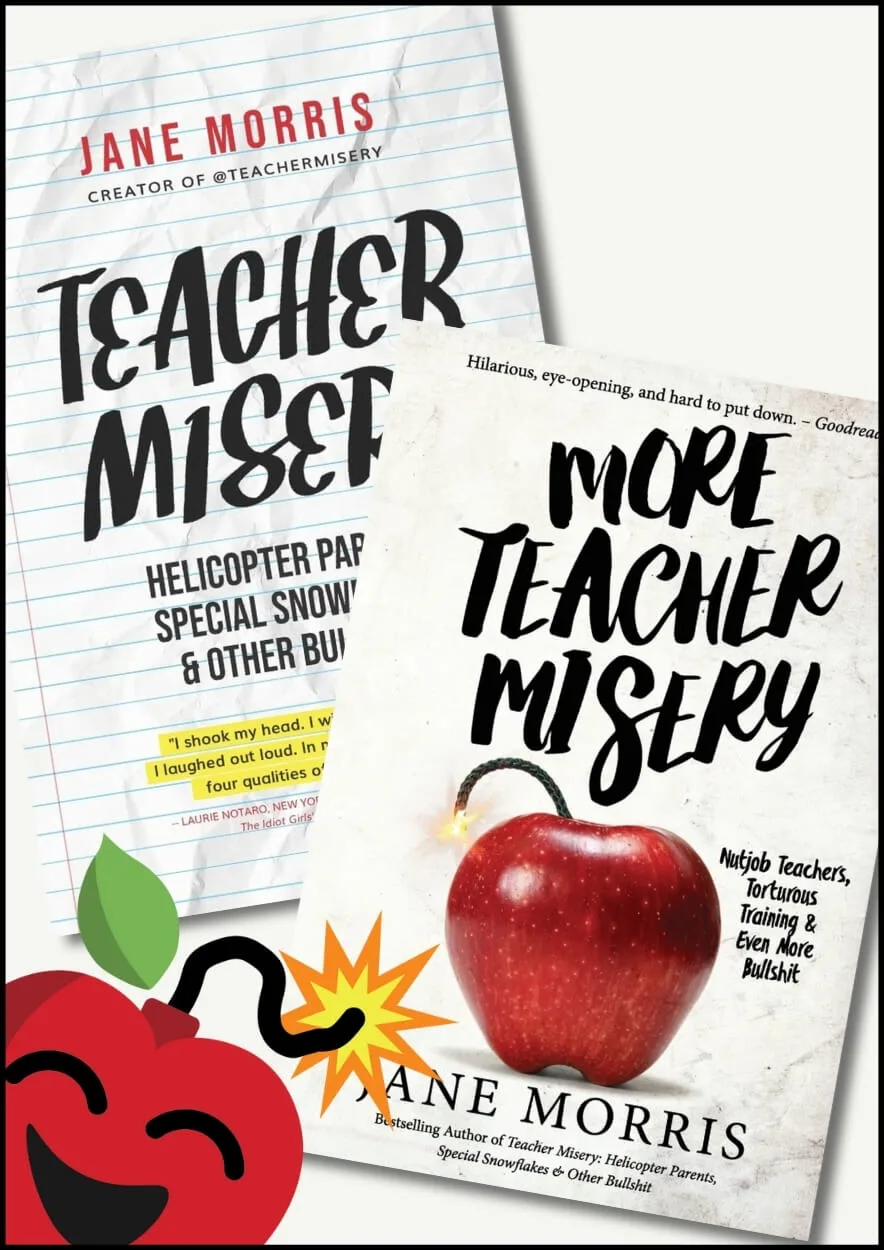
Separation of Church and State
Most Americans would probably agree that in public school, politics should be taught from a neutral standpoint. Teaching about communism is not the same as teaching kids to want to become communists.
In a country whose foundation is the separation of church and state, most should also agree that religion be taught from a neutral, informational standpoint that teaches respect for all beliefs and ideologies.
Teaching what atheists believe is not the same as teaching kids why they should be atheists. It’s the same for history lessons. All aspects of history should be taught without bias and at an age that is determined to be developmentally appropriate by psychologists and other experts.
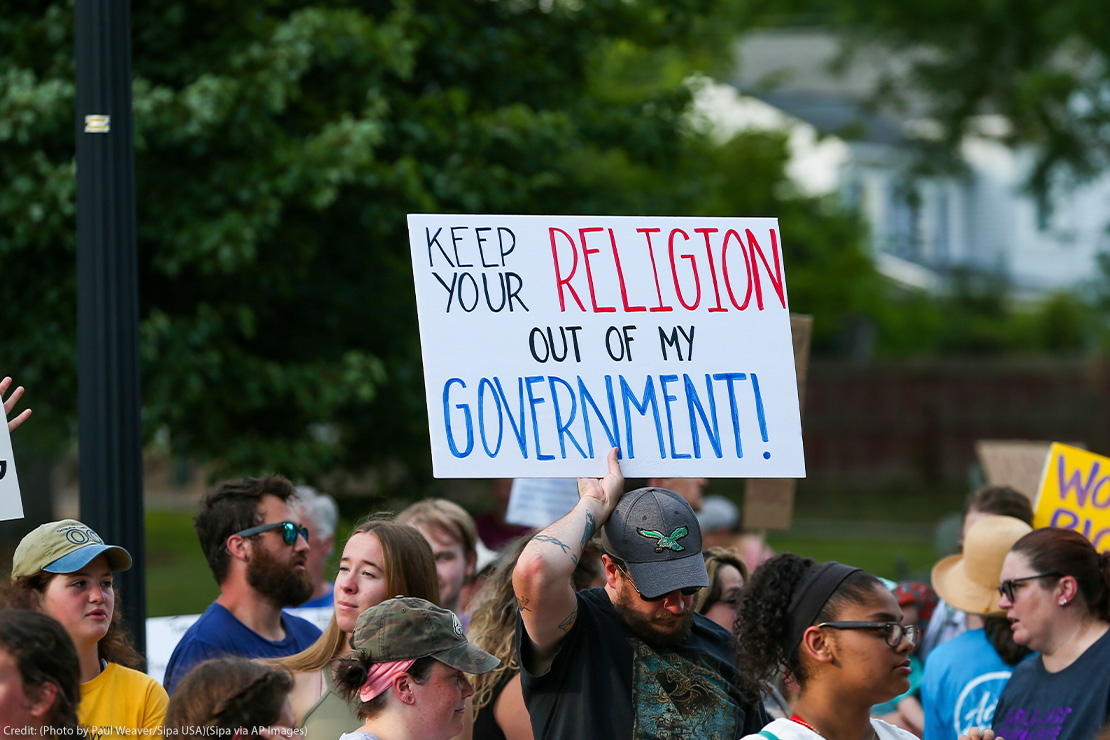
That doesn’t mean we have book bans or simply sugarcoat traumatic parts of history. It means that we might hold off on speaking about the event altogether until the students are developmentally ready to grapple with the subject matter.
But when students are deemed to be of an appropriate age to learn about terrible parts of our past, such as slavery, is it possible to teach these aspects of history from a depersonalized and neutral standpoint?
Must we be forced to read simple facts about genocide from a dry textbook instead of reading a firsthand account from a person who lived through the atrocity? Why would this even be an issue for some people?This is where things get complicated.
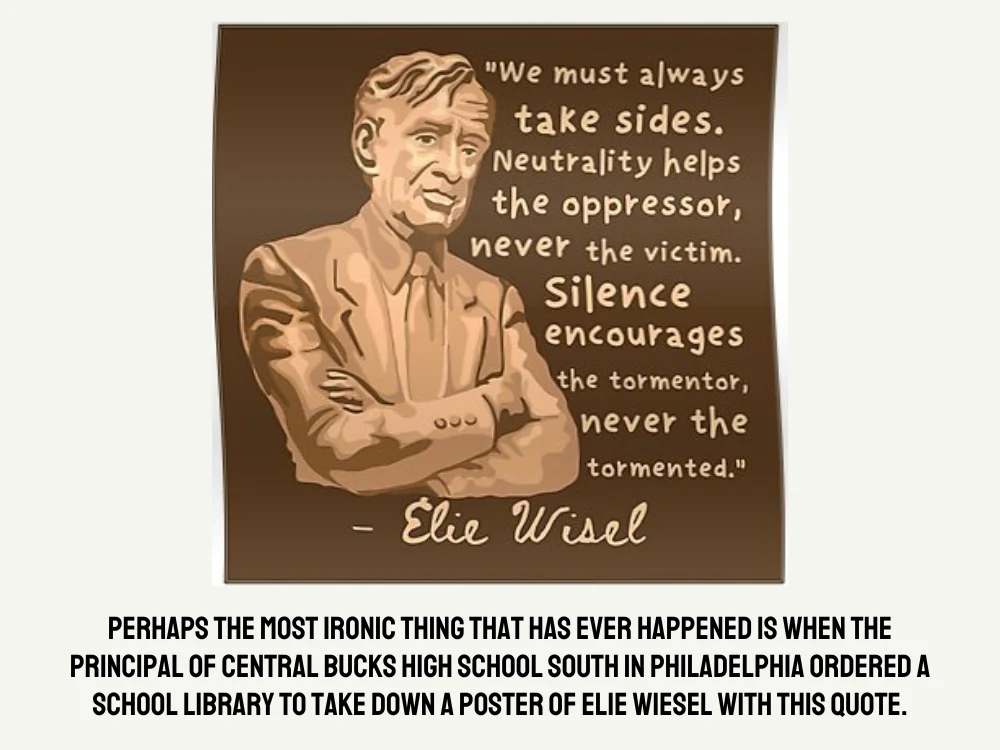
You Can’t Separate Emotion from History
If history were so straightforward as to be taught from a neutral standpoint, we would be living in a perfect, utopian world. History is painful, brutal, messy, and unbelievably cruel. As the famous quote says, “Those who do not remember the past are condemned to repeat it.”
In order to prevent future cruelty, we must teach our children about the cruel, unthinkable things that people have done to other people.
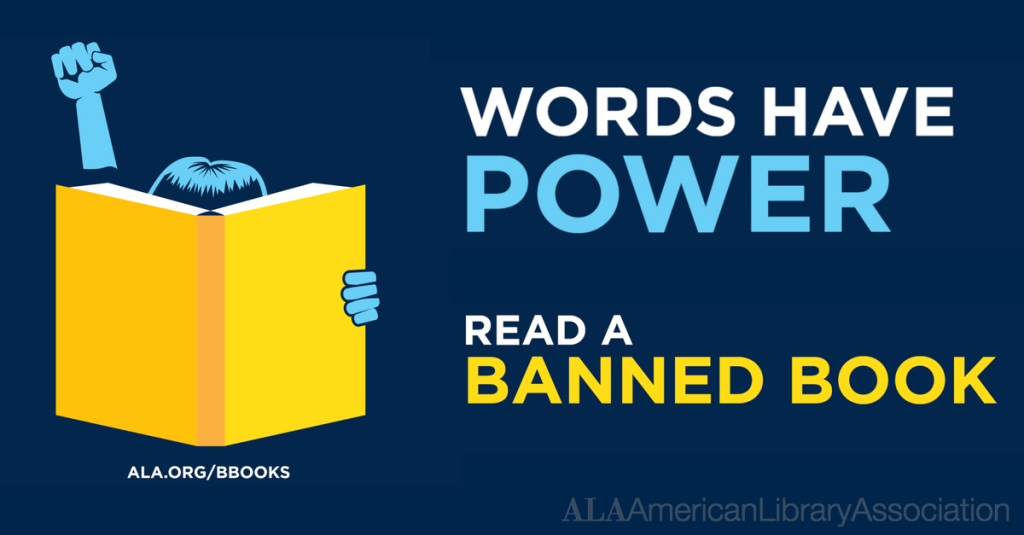
Removal of Books from School Library Shelves
Teaching about the terrible parts of history, such as slavery or genocide, is best done through first-hand accounts. That is the best way to humanize the inhuman. But now it seems that some people want to sanitize these topics so much as to make them barely recognizable from what they actually were, and they are literally taking books off of school library shelves to accomplish this.

An Attack on Free Expression
Since the 2020-2021 school year, 183 educational bills have been introduced in 40 different states meant to restrict the teaching of certain topics in K-12 schools and even in higher education. The majority of these bills target race, racism, gender, and American history, preventing teachers from even “prohibited” or “divisive” concepts.
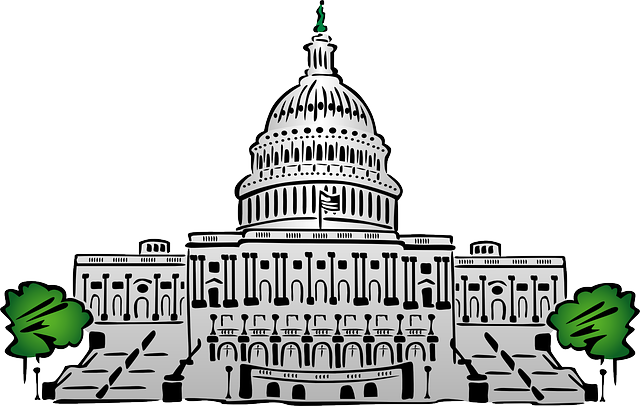
Book Bannings
19 of them have already become law in 15 states, which affects 122 million people. What is most concerning is the vague language used in these bills, which can be used in random scenarios, including massive book banning of a large amount of literature and historical materials just because it makes one person feel “uncomfortable.”
The most frequently banned books include content by and about people of color, which is particularly alarming. Eleven of the proposed bills have become law in nine states, and many more are gaining traction.

PEN America
Their site includes extensive research on these educational gag order bills and constantly updated lists of banned titles.
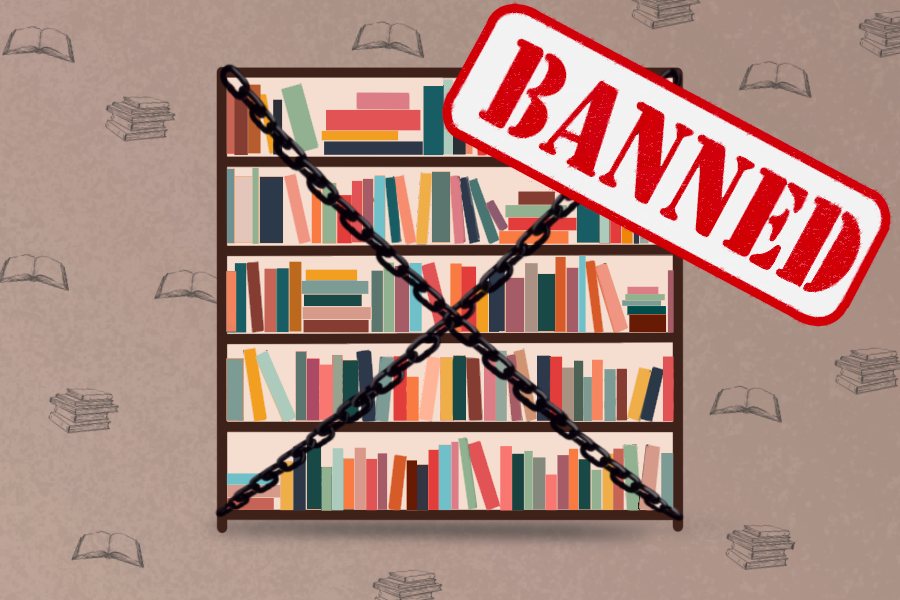
Here basic overview of a few of the most frightening bills that would effectively “prohibit the teaching of specific ideas, concepts, or curricular materials in public schools and higher education” and allow school book bans to continue with no oversight.
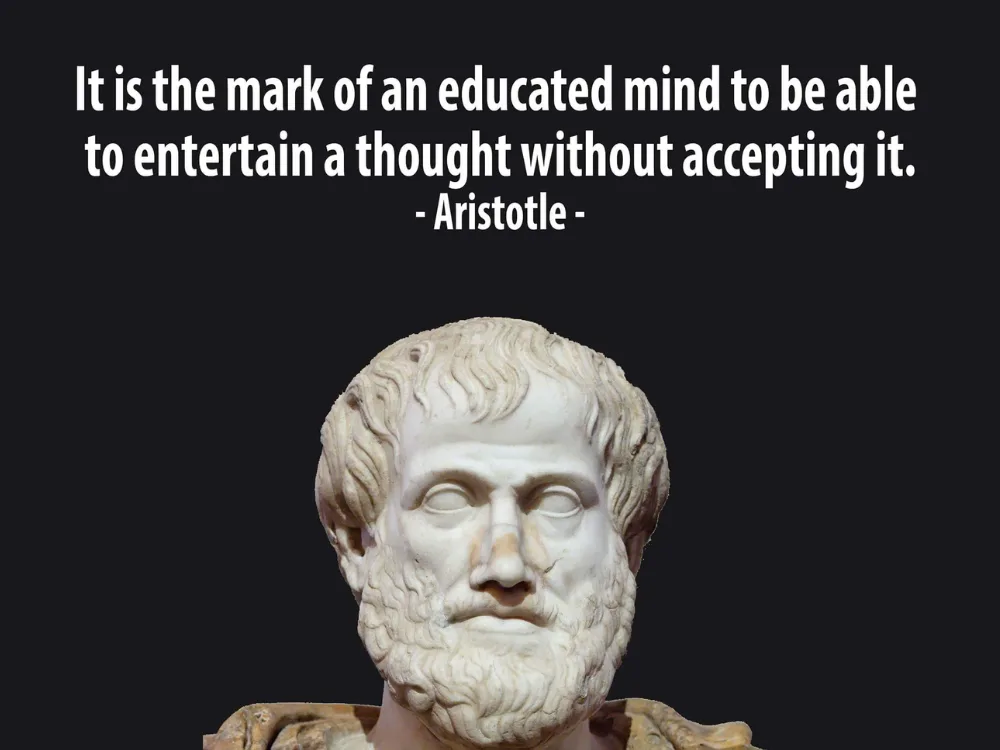
Alarmingly Vague Educational Bills
Several bills have been proposed and/or passed recently that allow parents to object to their child learning about just about anything for any reason. An executive order from Governor Kristi Noem in South Dakota “prohibits public K-12 schools from teaching anything that promotes inherently divisive concepts.” Yet what do they mean by “inherently divisive concepts?”
The ACLU of South Dakota issued a response opposing the order. They argue that the order violates the First Amendment right to receive information and knowledge. “Instead of encouraging learning, Noem’s executive order will have a chilling effect on academic freedom.”
Basically, laws like this can be used too broadly to ban just about any subject for any reason.

Teachers aren’t trying to hide anything, and most of this material is usually available online for parents to see anyway. The problem is trying to accommodate each parent’s challenged book in a short period of time and having to figure out what the child will do instead.
Teachers already have too much to do within a day. Some bills suggest that teachers might be required to upload an entire year’s worth of material before the school year starts, which I can tell you is impossible because of how many changes occur throughout the previous school year.
A Utah bill would permit parents to refuse to allow their children to participate in school lessons they find objectionable and to sue schools or education officials for any perceived infringement of their rights as parents.
Again, the issue here is accommodating each parent’s objection without alienating the child. Fear of a lawsuit will make an already stressful job feel impossible.
Similarly, a bill in Florida would allow parents to sue over perceived violations of a parents’ bill of rights that was enacted last year. And a Missouri bill would allow the state’s attorney general to sue schools for the same reason.
A bill in Indiana explicitly connects parents’ rights to the continuing controversy over how schools discuss race and racism. It would mandate the creation of “parent-led curriculum review committees,” which means any adult with a child in the school system will be able to object to materials that have been properly vetted by trained professionals.
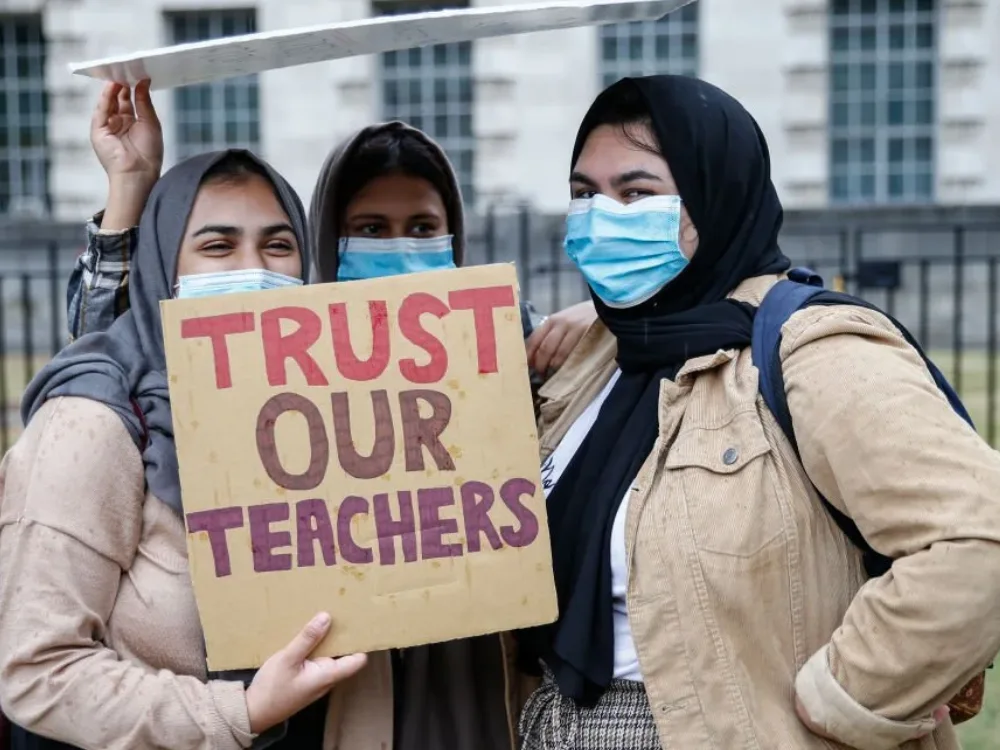
One Parent Doesn’t Like It? It’s Gone.
Although one parent’s complaint shouldn’t remove access to the book altogether, many schools remove the book or lesson after only one objection out of fear. A parent should have the right to say that they do not want their child to read a certain book, but they should not be able to remove access to that book for everyone else.
But that is the way things are unfolding in public schools around the country. There is so much fear around offending a parent that items are being removed at an alarming rate.
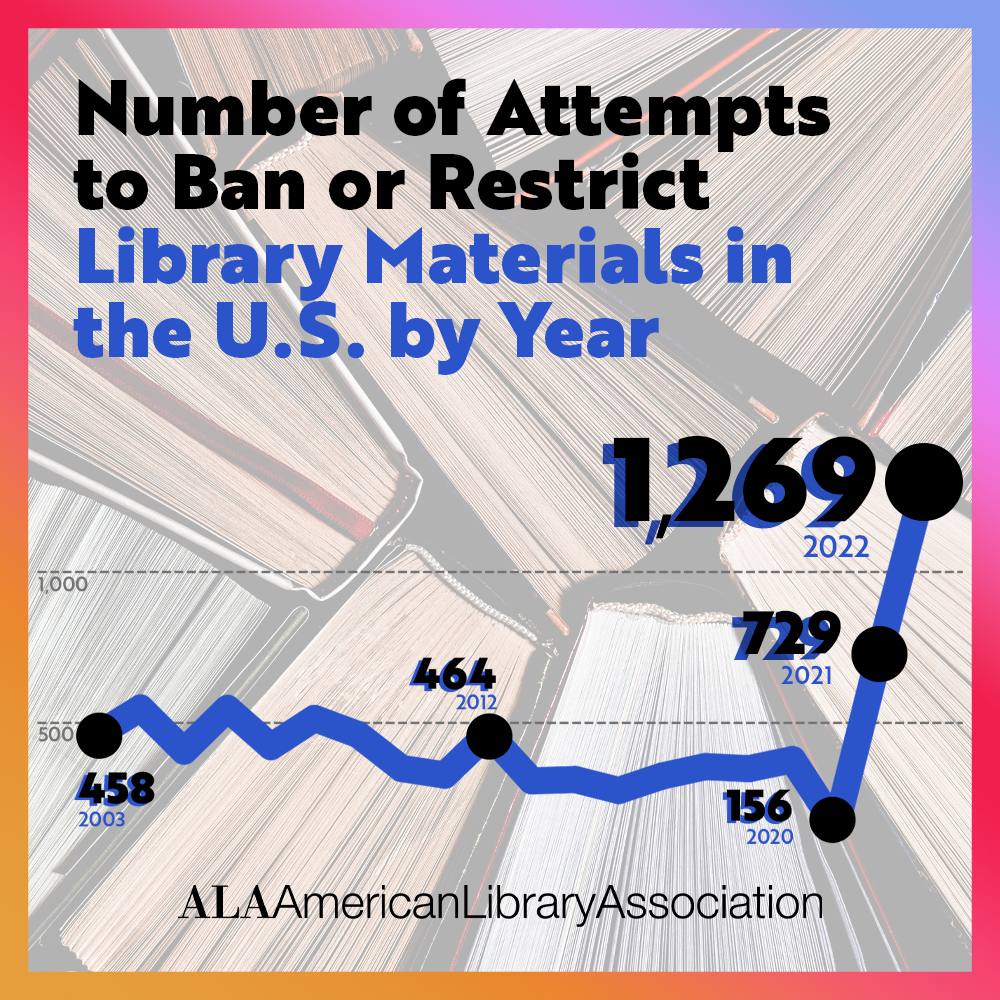
Banned Books and Removed Quotes
On Jan. 25, 2023, the principal of Central Bucks High School South in Philadelphia ordered a school library to take down a poster with a quote from Holocaust survivor and Nobel Peace Prize winner Elie Wiesel.
The quote, part of Wiesel’s 1986 Nobel Peace Prize acceptance speech, read, “I swore never to be silent whenever and wherever human beings endure suffering and humiliation. We must always take sides. Neutrality helps the oppressor, never the victim. Silence encourages the tormentor, never the tormented.”
The initial decision to remove the poster was in tandem with the Central Buck School Board’s passage of policy 321 in January, first introduced in September, which bans teachers from promoting “advocacy activities” displaying symbols of “any partisan, political, or social policy issue.”
Katie Lowe, program and collections director at the Elkins Park-based Holocaust Awareness Museum and Education Center, said, “The Holocaust is not about elevating one religion or another. It’s a historical incident.
What’s especially concerning is the implication that teaching the Holocaust is a political act. Because it’s not political to teach historical facts, and it’s not political to encourage and foster empathy in our students.”
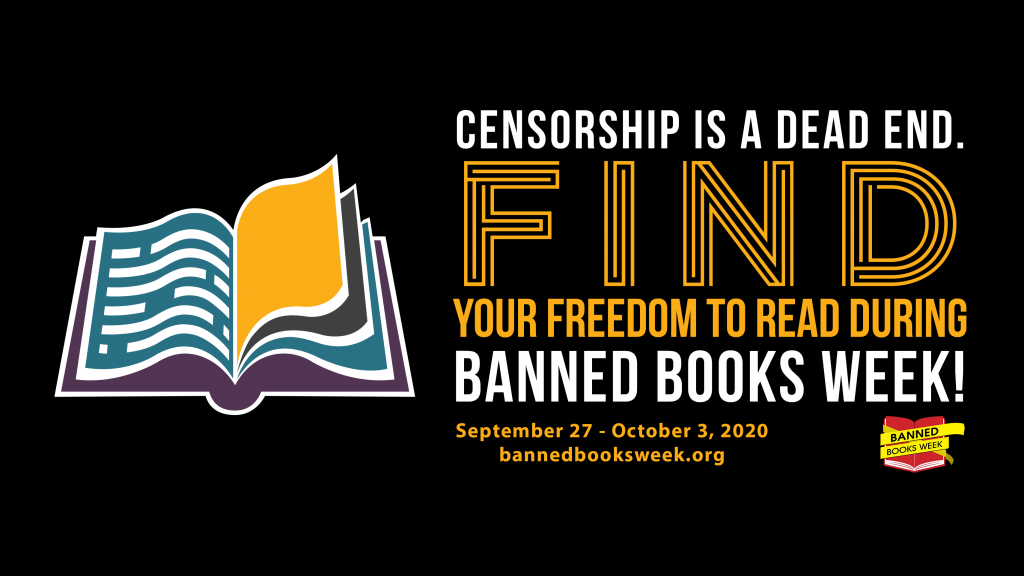
Similarly, Michael James, a teacher at an Escambia County public school in Florida, said that an employee removed posters of figures like Martin Luther King Jr., Harriett Tubman, and former President Obama from his special education classroom. The teacher quit because he felt this was racist behavior, and the reason cited for removing the posters was that they were not “age appropriate.”
All these bills do is increase the public’s mistrust of teachers and a general feeling of a lack of respect. Teachers are already tasked with handling way too many behavioral issues on top of a never-ending pile of paperwork. If they are forced to accommodate every parent’s feeling of discomfort, an already impossible job will become that much more difficult.
Book Bans Due to Discomfort
When did it become a bad thing to feel a little uncomfortable? As Aristotle said, “It is the mark of an educated mind to be able to entertain a thought without accepting it.” To be truly educated, our students should be allowed to examine various concepts and issues without fear of being “indoctrinated.”
And if the public’s mistrust of teachers is too great, perhaps they should consider homeschooling their children to ensure they never learn about anything that might cause a moment of discomfort.
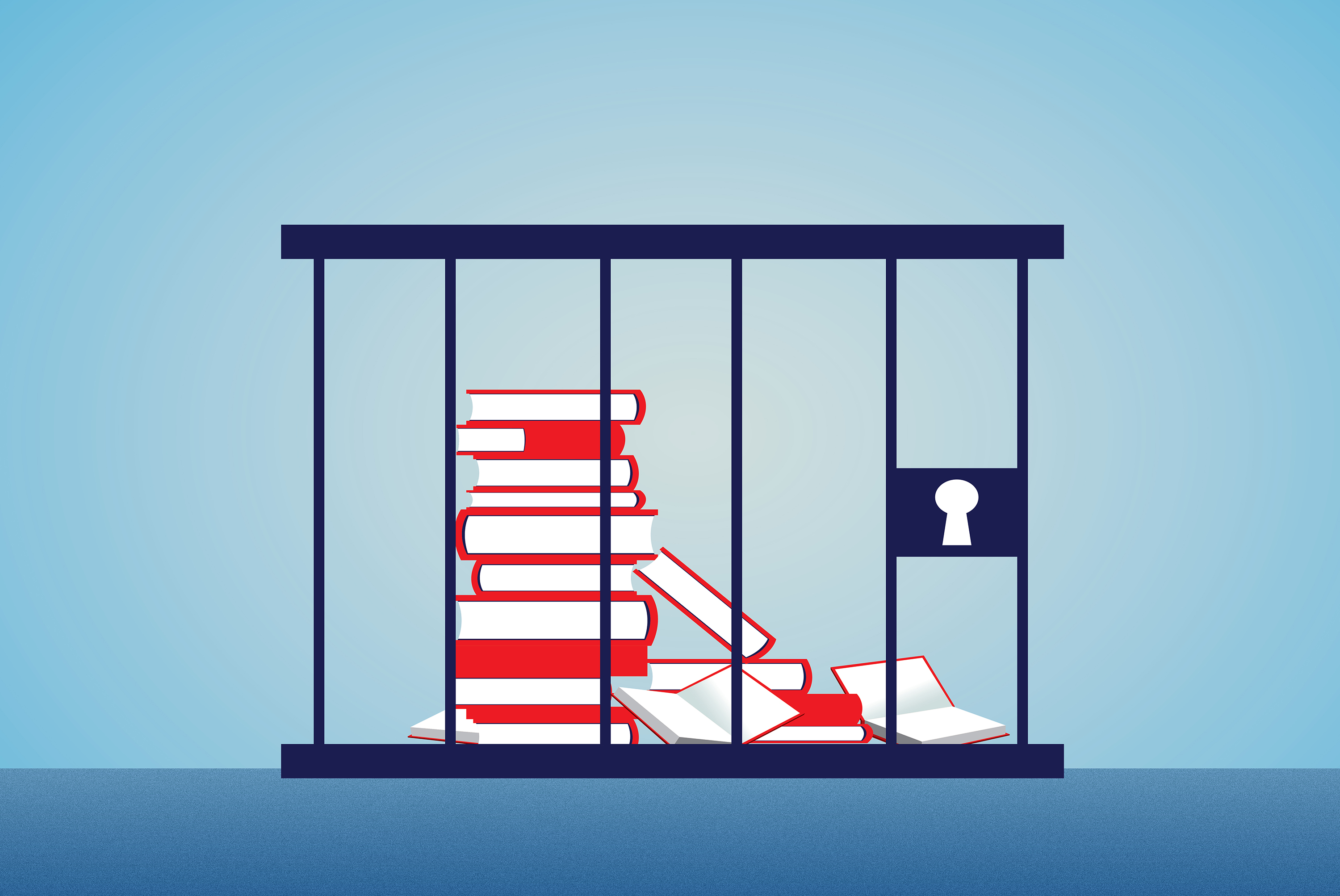
Most Frequently Banned Books
If you look more closely at the most challenged books and the most frequently banned books, several clear patterns emerge. The themes and ideas that are challenged the most in public schools and library shelves involve race, sexual identity, and gender. During the first half of the 2022-23 school year, PEN America’s Index of School Book Bans lists 1,477 instances of individual books banned, affecting 874 unique titles.
In that 6 months alone, 30% of the banned books were books about race, racism, or feature characters of color. Meanwhile, 26% of unique titles banned have LGBTQ+ characters or themes. It seems that some parents don’t want their own children to read about the experiences of people of color or gay people at all. And if one parent questions a children’s book title, it can be removed just from that.
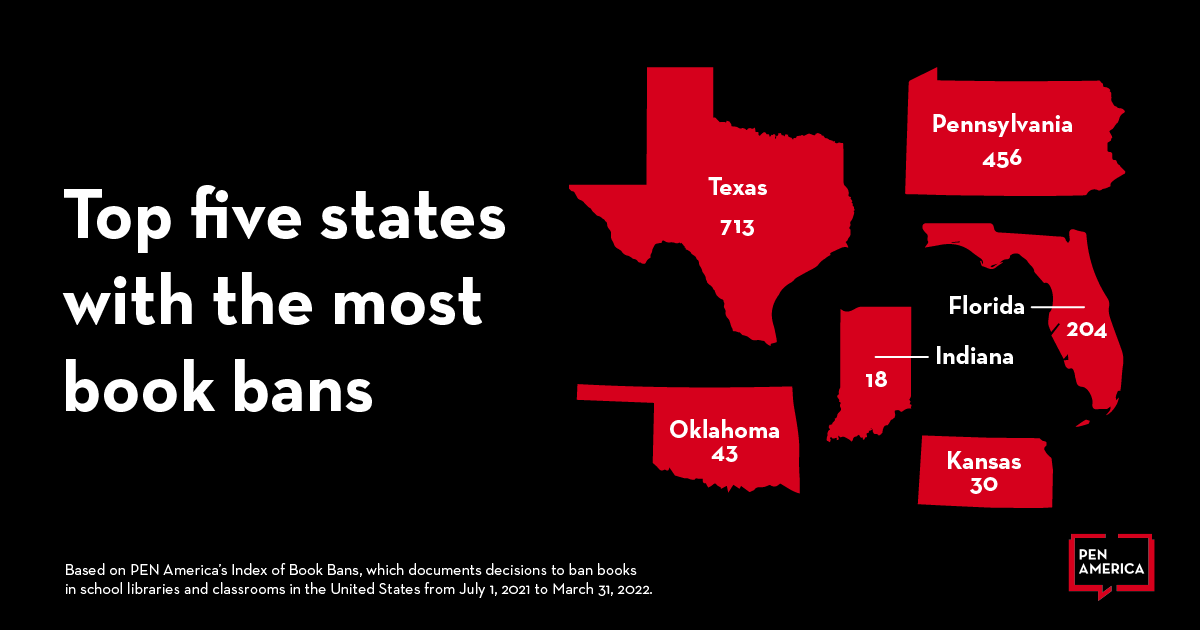
A Librarian’s Perspective
A middle school librarian in Texas feels that, “Education has problems, but books aren’t one.” When asked about her feelings on the amount of banned books in the country and in her own state, she says that her own state of Texas “has lost its mind.”
She says that statements she commonly hears from parents include, “School libraries contain pornography” and “Children shouldn’t read about gay people.” She talks about being threatened with prosecution “to the fullest extent of the law” and expresses concern that librarians are already losing their jobs.

Banning Books is a Priority?
When asked to remove books, one librarian in her district lost her job because she suggested the students get a public library card. “In our legislature,” she states, “ridding schools of inappropriate books is a top priority. Mass shootings? Not a priority. Fentanyl poisoning? Not a priority.”
School district in Texas have already been asked, by elected officials and parents, to remove books with LGBTQ+ characters. Librarians have already been targeted personally because they are seen as “indoctrinating” students with immoral ideas for having books in the library with gay characters.
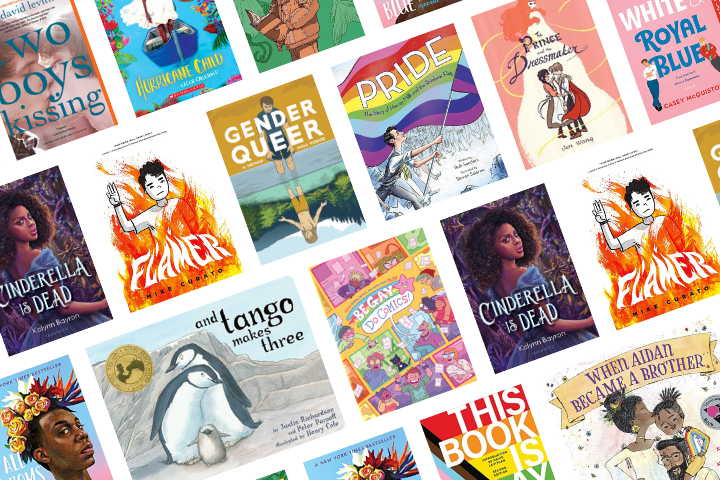
The True Victims
According to this librarian, the ones who have been truly hurt by these book bans are the students. “Each and every school I have ever worked in has gay kids. Can you imagine how it must feel to see adults try to deny your existence? Attempt to label you ‘abnormal’ or ‘immoral?’
It’s a given that it’s hard to be gay in middle school. A book with an LGBTQ+ character who is coping with similar issues might give some hope to a kid on the brink.
What if a book could prevent suicide? This is just another instance where the possibility of kids dying is not the priority. And what are all the other kids being taught by this assault on free expression? They are being sent the message that intolerance is acceptable, that censorship is fine, and that books are dangerous.”
This librarian found it alarming that during open house, parents didn’t pay much attention to student work because they were busy flipping through library books to scan for gay characters and sexually explicit sexual content therein.
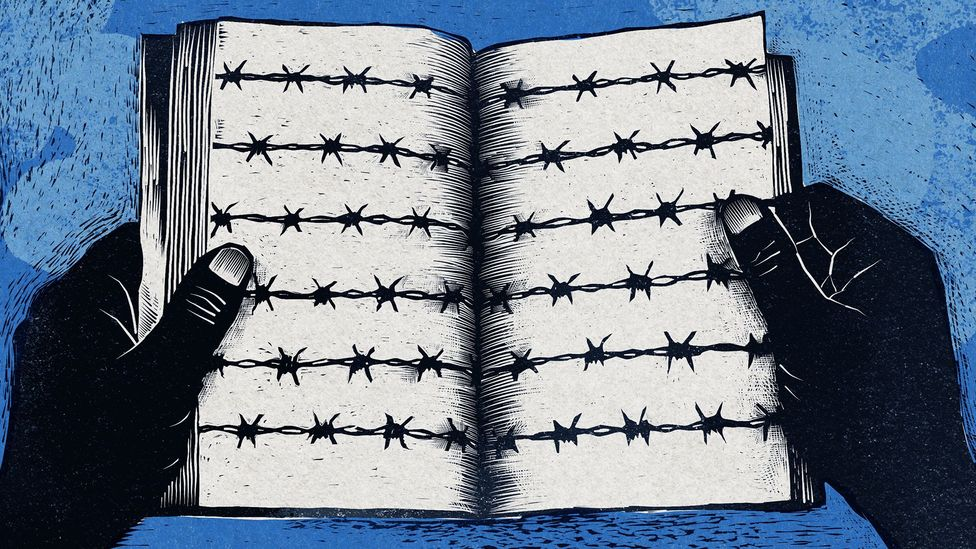
Gender Identity Makes People Uncomfortable
The discrimination gets even uglier when books have characters who are questioning their gender identity. Of all the banned titles, books with gender queer or questioning characters seem to get the most scrutiny. A positive portrayal of a character with whom a student can identify with in a book makes a huge difference to a kid who is struggling with the same issues.
“Trans kids are some of the most at-risk students we will have, and families of trans students are being threatened with child protective services. Educators in my school district were instructed to report any student receiving gender-affirming care to child protective services so they could investigate the ‘abuse.’
Parents and students who are navigating a challenging situation, to begin with, are now met with judgment and cruelty. If this doesn’t worry people because their own children aren’t gay or trans, perhaps it might be concerning that some parents and lawmakers also want to remove books that talk about menstruation.
A Natural Part of Life
Some of our kids will be taught that their body is shameful. One lawmaker even wants to ban girls from talking about their period until 6th grade. In Anne Frank’s Diary, she wrote about her period, and you guessed it, it was part of a book banning.
Books are a safe space where students can see how a character deals with a difficult situation. It’s a space where students can learn to accept people who are different from them. Young adult books are places for girls to read about their changing bodies. In other words, students can read about life and its many adversities.”

Books are not the Enemy
When this librarian was asked to provide an overall message for parents about school libraries, she said, “Books don’t make students gay, and periods aren’t scandalous. If you ask any student of any age what the scariest part of school is, I guarantee you, not one of them will say the library books.”
Have something to say about this topic? Check out the anonymous VENT foum or send in a secret.
If you enjoyed this article, you’d probably love Teacher Salary By State and Seeds for the Teacher Shortage were Planted Years Ago.
Buy Some Merch · Support the Site!
Teacher Misery is by the teachers and for the teachers. Our mission to improve the lives of teachers everywhere.
If you’d like to support the cause, buy yourself (or the burnt-out educator in your life) a gift from our merch store. And, YES, they are all as sarcastic as you’d hope. 😉
Every dollar supports the commiseration!


